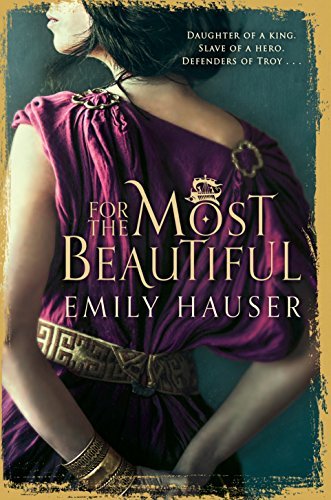What do you think?
Rate this book


400 pages, Hardcover
First published January 28, 2016



Hermes, the god of trickery and thieving, turns away from where he has been watching, hidden from Paris and the goddesses behind the thick trunk of the olive tree. He shakes his head. What a fool Paris was not to run away as soon as he heard what the goddesses wanted him to do. And Helen will create a problem, he thinks. She already has a kingdom in Greece... and a husband, wedded and bedded...


'The city will fall, but we have not yet decided who will live and who will die. You may try to save your favourites, and it'll all be out in the open. Nothing personal. All right?'
The gods raise a ragged cheer. Some even toast Zeus with their goblets of nectar by drowning them in one.
